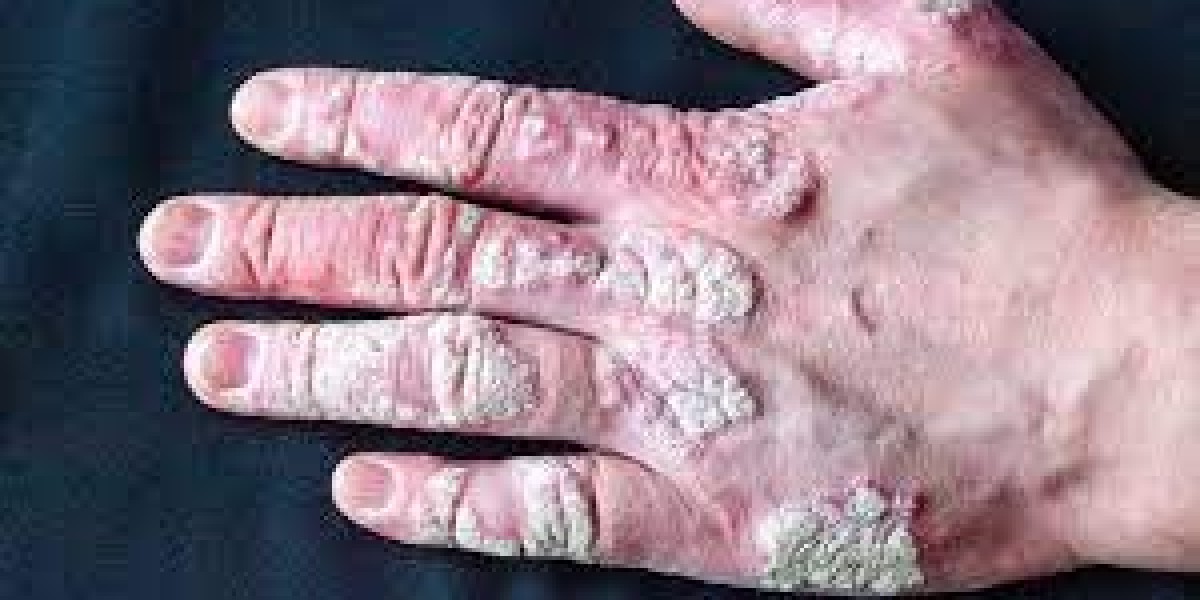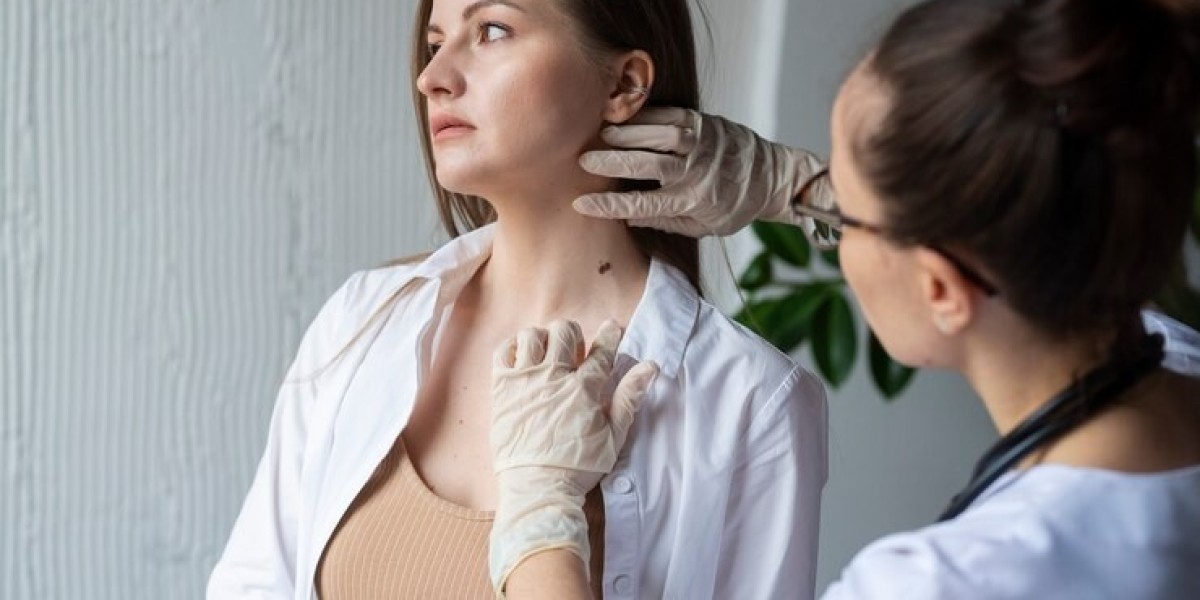Psoriasis is a chronic skin condition that affects millions of people worldwide, and its symptoms can vary from mild to severe. In Riyadh, access to quality and effective treatments for psoriasis is essential for those looking to manage this condition. This guide explores the different treatment options available, how they work, and what individuals in Riyadh can expect when seeking care for psoriasis. We'll cover everything from topical treatments to advanced therapies, focusing on affordability, accessibility, and effectiveness.
Understanding Psoriasis: What It Is and Its Impact
Psoriasis is a non-contagious, autoimmune skin disorder that causes rapid skin cell growth, leading to scaling, inflammation, and redness. While the exact cause remains unknown, it is believed to involve a combination of genetic and environmental factors. The most common symptoms include patches of thick, red skin with silvery scales, itching, and discomfort. Psoriasis can affect various parts of the body, including the scalp, elbows, knees, and lower back.
Living with psoriasis can significantly impact an individual's quality of life, both physically and emotionally. Managing symptoms is key to reducing discomfort, and many residents in Riyadh are seeking psoriasis treatment in Riyadh to improve their overall well-being. With numerous treatment options available, understanding which one is right for you is essential.
Common Triggers of Psoriasis
Though the exact cause of psoriasis is still under study, several triggers are known to exacerbate symptoms:
- Stress: Emotional stress is a significant trigger for many people with psoriasis.
- Infections: Throat infections and other bacterial or viral infections can worsen psoriasis.
- Weather Conditions: Cold, dry weather may increase symptoms, while exposure to sunlight can improve them.
- Skin Injuries: Cuts, scratches, or even insect bites can cause psoriasis patches to form.
- Medications: Some medications, such as beta-blockers or lithium, can trigger or aggravate the condition.
Understanding these triggers helps in the effective management of psoriasis through appropriate treatments.
Topical Treatments for Psoriasis
What Are Topical Treatments?
Topical treatments are applied directly to the skin and are often the first line of defense in treating mild to moderate psoriasis. These treatments aim to reduce inflammation, remove scales, and slow down the rapid skin cell turnover that causes psoriasis.
Common Topical Treatments
- Corticosteroids: These anti-inflammatory medications are the most commonly prescribed treatment for psoriasis. They reduce swelling and redness, helping to alleviate symptoms.
- Vitamin D Analogues: These synthetic forms of vitamin D can slow the growth of skin cells and reduce scaling.
- Salicylic Acid: Often used in combination with other treatments, salicylic acid helps to soften and remove dead skin scales.
- Coal Tar: This traditional treatment slows skin cell growth and reduces itching, but it can be messy and have a strong odor.
Topical treatments are generally affordable and accessible, making them a popular option for those seeking psoriasis treatment in Riyadh. However, they are best suited for less severe cases.
Phototherapy: Light-Based Psoriasis Treatment
What Is Phototherapy?
Phototherapy, also known as light therapy, is a treatment that uses natural or artificial ultraviolet light to slow down the rapid skin cell turnover that causes psoriasis. This method is highly effective for people with moderate to severe psoriasis and is often recommended when topical treatments are not enough.
Types of Phototherapy
- UVB Phototherapy: This is the most common form of light therapy and involves exposure to ultraviolet B light. Treatment sessions are typically conducted several times a week.
- PUVA: PUVA combines a drug called psoralen with UVA light, making the skin more sensitive to the light. It is generally reserved for more severe cases of psoriasis.
Phototherapy is highly effective in reducing symptoms and can lead to long-term remission. However, regular sessions are necessary, and the treatment must be monitored to avoid skin damage. For residents seeking psoriasis treatment in Riyadh, phototherapy is a viable option offered by many dermatological centers.
Systemic Treatments: For Moderate to Severe Psoriasis
What Are Systemic Treatments?
Systemic treatments work throughout the entire body and are often prescribed for individuals with moderate to severe psoriasis or those who have not responded well to topical treatments or phototherapy. These treatments target the immune system, reducing inflammation and preventing skin flare-ups.
Types of Systemic Treatments
- Methotrexate: This medication slows the rapid growth of skin cells and suppresses the immune response. It is widely used but requires regular blood tests to monitor for potential side effects.
- Cyclosporine: This drug also suppresses the immune system and can provide quick relief for severe psoriasis. However, long-term use can lead to kidney problems and high blood pressure.
- Biologics: Biologic drugs are newer treatments that specifically target certain proteins in the immune system that are responsible for psoriasis. They are effective for both psoriasis and psoriatic arthritis but can be expensive.
- Retinoids: Derived from vitamin A, retinoids can help slow skin cell production and are particularly useful for pustular psoriasis.
Systemic treatments can provide relief for more stubborn or severe forms of psoriasis. However, they come with a range of side effects and require close medical supervision, making it essential to consult with a specialist before proceeding.
Emerging Psoriasis Treatments in Riyadh
Biologic Medications
Biologic medications represent a significant advancement in psoriasis treatment. They are designed to target specific parts of the immune system, providing relief for individuals who haven’t responded to other treatments. The biologics work by blocking the action of certain proteins responsible for the inflammation associated with psoriasis.
These drugs are injected or infused and are generally prescribed for people with moderate to severe psoriasis. While effective, biologics tend to be more expensive than traditional treatments, making affordability an important consideration for patients in Riyadh.
Oral Medications
In addition to biologics, new oral medications are emerging for the treatment of psoriasis. These pills are designed to target specific immune system pathways and are easier to administer than injections. Many patients find them more convenient than biologics, although they still come with the need for ongoing monitoring due to possible side effects.
Lifestyle Changes for Psoriasis Management
Importance of a Healthy Diet
Though there is no specific diet that will cure psoriasis, certain foods can help reduce inflammation and improve skin health. Incorporating a healthy diet rich in anti-inflammatory foods such as leafy greens, fruits, fish, and nuts can contribute to better overall skin health.
Stress Management Techniques
Since stress is a known trigger for psoriasis flare-ups, managing stress through meditation, yoga, and other relaxation techniques is crucial. Regular exercise, adequate sleep, and mindfulness can also improve the body’s response to psoriasis triggers.
Skin Care and Hydration
Proper skin care is essential for managing psoriasis. Regular moisturizing can help prevent dryness and cracking, while avoiding harsh soaps and skin irritants can reduce the risk of flare-ups. Patients in Riyadh’s often dry climate should pay special attention to keeping their skin hydrated.
Finding the Right Psoriasis Treatment in Riyadh
Considerations for Treatment
When looking for the best psoriasis treatment in Riyadh, it’s important to consider factors like the severity of the condition, personal lifestyle, and budget. With a wide range of treatment options available, individuals can choose between topical treatments, phototherapy, systemic medications, and emerging therapies such as biologics and oral medications.
Accessibility and Affordability
Riyadh is home to numerous dermatology centers that offer advanced treatments for psoriasis, ranging from affordable topical therapies to more expensive biologic medications. With government and private healthcare facilities available, residents can access care that fits their financial situation and health needs.
Conclusion
Psoriasis is a challenging condition, but with the right treatment plan, individuals can lead a comfortable and healthy life. Riyadh offers a variety of options for managing psoriasis, from affordable topical treatments to advanced systemic therapies and biologics. For those seeking psoriasis treatment in Riyadh, it’s important to consult with a healthcare provider to develop a personalized plan that works for their specific condition and lifestyle.
By understanding the treatment options available and taking proactive steps to manage psoriasis, patients can significantly reduce symptoms and improve their quality of life. With advancements in treatment and increasing accessibility, effective psoriasis care in Riyadh is within reach for everyone.








